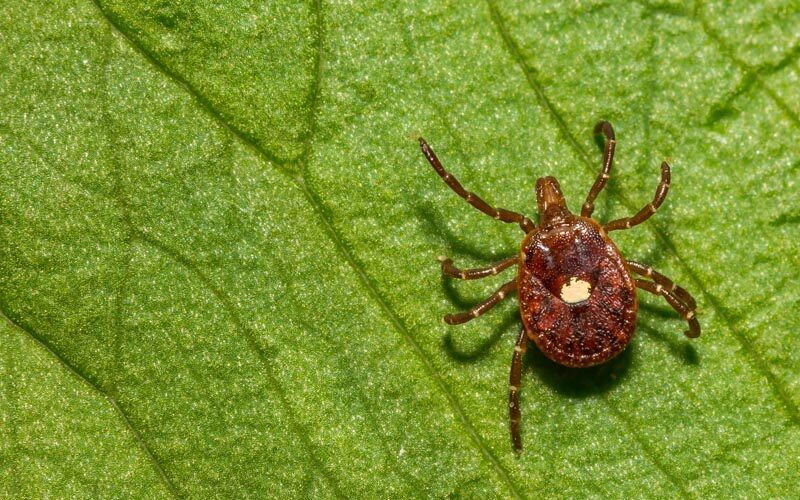
By Emily Strother
There’s a tick in Virginia that can make you allergic to red meat, and it found me while I was hunting spring gobblers.
It’s a fact that ticks and hunters are drawn to the same places—where there’s abundant wildlife, vast spaces to roam, and the raw scent of nature when the wind blows in the springtime. Speaking from experience, it’s almost impossible to get through a season without having a few stuck to me.
Each time I slipped into the woods to turkey hunt, I did my best to protect myself from ticks. Knowing that there was a growing prevalence of the red meat allergy among the Virginia hunting community I knew, I felt vulnerable each time I walked through the woods. Despite my effort, I wasn’t immune to their desire to bite me. But I suppose we’ve got to take risks to do things we love sometimes.
In 2019, I contracted a red meat allergy–known as alpha-gal syndrome (AGS) or allergy—from a tick bite I got while hunting turkeys that spring. As a gal who enjoys hunting and experimenting with wild game in the kitchen, realizing that I could no longer consume venison or other mammal meat was a hard pill to swallow. Besides a fried piece of deer tenderloin over the woodstove, who doesn’t love a tender piece of filet mignon every now and then?
What is Alpha-gal?
Alpha-galactose is a carbohydrate that is present in all mammals except higher primates, such as apes and humans. This carbohydrate is present in mammal meat such as beef and pork, but more importantly for hunters, it’s present in wild game including venison, elk, bear, rabbit, squirrels, and other game we pursue here in Virginia. Alpha-gal is not found in fish, reptiles, birds, or people.
Dr. Jonathan Mozena, a board-certified allergist and immunologist, said that AGS is where an individual develops an allergy to the carbohydrate present in mammal meat. This is unique because most other allergies—such as a peanut allergy—are an allergy to a protein found in a particular food.
“Alpha-gal is unique because it’s an allergy to a carbohydrate and not a protein. If a person is allergic to beef, that same individual will react to pork, lamb, bear, deer, and so forth,” he said.
Another unusual characteristic of the allergy is that while most food allergies occur within minutes of eating, that’s not the case with AGS. Allergic reactions to alpha-gal tend to be delayed by nearly four to eight hours. The first time I experienced a reaction was almost eight hours after I ate a hamburger.
It was presumed that ticks feed on the blood of other mammals, such as deer, and would transfer the alpha-gal molecule once it latched on to a human. But there’s new speculation that a tick itself can produce an alpha-gal-like structure.
While the lone star tick is the most known tick to carry alpha-gal in the U.S., there are other ticks worldwide that likely carry alpha-gal. Studies have also shown that even chiggers can likely carry alpha-gal.
The good news, at least for some, is that not everyone will develop an alpha-gal allergy after being bitten. Mozena said there is likely something genetically different about those who contract the allergy.
“There are millions of tick bites each year, but not millions of cases,” said Mozena. “Being genetically predisposed creates a perfect storm to develop the allergy. There may also be a third thing that has to happen beyond the genetic predisposition and the tick bite that we don’t understand yet.”
It’s also unclear whether a tick can immediately infect a person once it latches on. Mozena said he sees a steady stream of patients, most often diagnosing patients with the allergy in the summer and fall, but it’s not always clear how long it takes for the patient to be exposed. Currently, he treats around 40 to 50 patients annually with AGS.
Fortunately for those who have AGS, the allergy typically recedes over time. “For many people, if they aren’t bitten by another tick for a while, the level of alpha-gal in the blood typically drops and they can be reintroduced to red meat,” said Mozena.
While there is currently no treatment for AGS, simply being aware and taking precautionary measures to avoid tick bites is vital to protect yourself this season.

